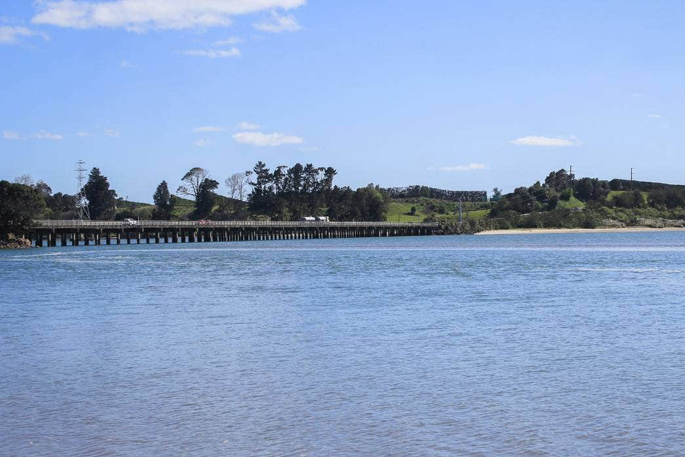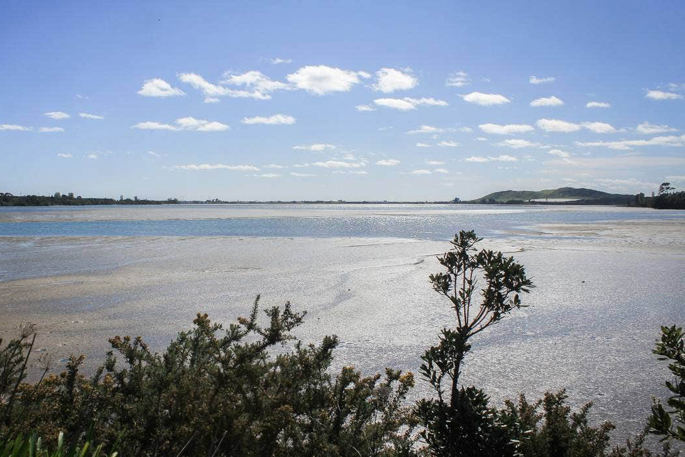Customary marine title over a Tauranga estuary has been granted to five iwi and hapū by the High Court.
Te Tāhuna o Rangataua is a tidal estuary within 10 minutes' drive from the Tauranga central business district, and is the easternmost arm of Tauranga Moana (Tauranga Harbour).
Justice Grant Powell wrote that there was 'evidence of a deep and abiding connection” over several hundred years for the groups granted the title – legal recognition of their relationship with the area.
The application for customary marine title was brought under the Marine and Coastal Area (Takutai Moana) Act 2011, which replaced the controversial Foreshore and Seabed Act 2004.
Also known as the MACA, it provides a mechanism for the recognition of customary rights.
Seven applicant groups sought to be included in a single joint customary marine title encompassing Te Tāhuna o Rangataua, and five were successful.
Justice Powell this week released a High Court judgement granting customary marine title to Ngā Pōtiki ā Tamapahore, Ngāi Tukairangi, Ngāti Tapu, Ngāti Hē and Ngāti Pūkenga.
The five groups worked together as the Rangataua Working Party.
Customary marine title will be held jointly by the five in a new legal entity to be known as Ngā Pāpaka o Rangataua.
In his judgement, Justice Powell said there was insufficient evidence to support the inclusion of two other applicants, Ngāti Ruahine and Ngāi Te Ahi, in the title.
He said the use and management of Te Tāhuna o Rangataua, previously known as Rangataua Bay, largely remains with a group of active Māori communities affiliating to no less than six marae.

These communities colloquially define themselves in part by their relationship to Te Tāhuna o Rangataua, as 'Ngā Pāpaka o Rangataua” (the crabs of Rangataua).
Justice Powell said the communities also remain the owners of the majority of the land adjoining the estuary, and see themselves as both the traditional owners and kaitiaki of the estuary.
'Despite the closeness of Te Tāhuna o Rangataua to the fifth largest metropolitan centre in New Zealand, and despite residential subdivision occurring at the south-western end of the harbour, particularly in Te Tihi/Welcome Bay, the estuary is largely cut off from the rest of Tauranga Moana by the Maungatapū Bridge which carries State Highway 29A from Tauranga to Mount Maunganui and Pāpāmoa.”
Justice Powell wrote in his judgement that the evidence 'is both unequivocal and overwhelming” that the Rangataua Working Party applicants have met the legal test for the issue of a customary marine title.
'It is clear that, since occupying the land surrounding Te Tāhuna o Rangataua some 300 years ago, they have held and continue to hold Te Tāhuna o Rangataua in accordance with tikanga.”
He said the close proximity in which each of the five groups have exercised their rights over Te Tāhuna o Rangataua also makes it clear that a single joint customary marine title 'is both appropriate and inevitable”.
Justice Powell said each of the Rangataua Working Party applicants can demonstrate they have whakapapa connecting them to Te Tāhuna o Rangataua, and their whakapapa in turn gives rise to 'take tupuna”, inheritance from tupuna with authority over Te Tāhuna o Rangataua.
There was also clear evidence the applicants have an enduring relationship and spiritual connection with the takutai moana, and Te Tāhuna o Rangataua in particular.
'There is a coherent set of beliefs, practices and values that is observed by applicant group members, is widely known and understood, and guides everyday behaviour; the tikanga is long-standing, having been passed down from generation to generation.
'It is no exaggeration to say that at every level, whether practical, cultural, historical and/or spiritual, there exists evidence of a deep and abiding connection between the Rangataua Working Party applicants in Te Tāhuna o Rangataua which translates into ongoing customary authority.”
There was no opposition to a customary marine title order being recognised over Te Tāhuna o Rangataua.
Although 11 parties, including the Crown, gave notice of an intention to appear as interested persons, only the Crown participated throughout the hearings.
The Crown accepted that the tests for the issue of a customary marine title over Te Tāhuna o Rangataua had been met.
You can read the full judgement here.



4 comments
Fair Enough
Posted on 14-10-2021 18:11 | By Walbuck
Although they'll have to pay the rates on it right?
Hmmm
Posted on 14-10-2021 19:11 | By Let's get real
Surprisingly, I think that I agree with this as long as the groups don't expect public money to start flowing their way along with customary title. Unfortunately, history suggests that some will feel entitled to having someone else paying for idealistic visions of the future.
So, next week
Posted on 14-10-2021 21:20 | By The Caveman
If I want to go fishing in that bit of the harbour (which I have been doing for 50 years) I will either be chased out of the area or a FEE will be demanded !!
Customary Rights...
Posted on 15-10-2021 13:19 | By morepork
...should never be regarded as "ownership". It should not confer the right to charge tolls or fees or to limit access; it should guarantee continued access, as has been the "custom" (tikanga) and right to kaimoana, within conservation Laws. The Land and the beaches should be owned by the Nation and administered by the Crown, who may delegate this administration to local people who claim customary rights (and can support their claim). Out of 7 Iwi who applied, 5 were successful, 2 were not. If there was no tangible financial advantage in "Customary Rights" this would not matter, and all 7 could be treated the same. Laws that give privilege and advantage to some, and not others, simply foment anger and frustration and do not help to heal the divisions in our society.
Leave a Comment
You must be logged in to make a comment.